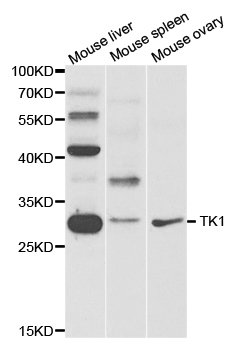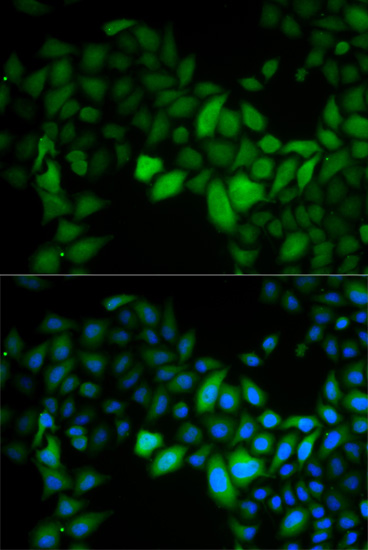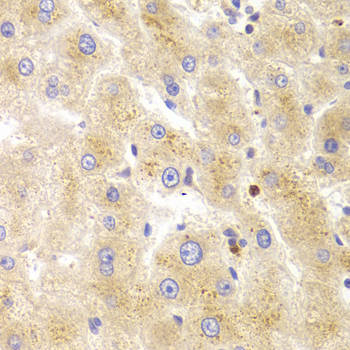Thymidine kinases play a critical role in generating the DNA synthetic precursor deoxythymidine triphosphate (dTTP) by catalyzing the phosphotransfer of phosphate from ATP to deoxythymidine (dT) and thymidine (T) in the cell. There are two known thymidine kinases, cytoplasmic thymidine kinase 1 (TK1) and mitochondrial thymidine kinase 2 (TK2) (1,2). Unlike TK2, which is not modulated by the cell cycle, TK1 expression and activity is regulated in a cell cycle-dependent manner, accumulating during G1-phase to peak levels in S-phase before being degraded prior to cell division (3,4). Stability, but not activity, may be regulated via phosphorylation of TK1 at Ser13 by Cdc2 and/or Cdk2, but the precise mode of regulation remains elusive (5). These observations indicate that TK1 might be a useful marker of cell proliferation; however, recent studies have shown that TK1 plays a more significant role in the DNA damage response (6). Genotoxic stress promotes increased TK1 expression and kinase activity resulting in reduced cellular apoptosis and enhanced DNA repair efficiency (6). More importantly, numerous studies show that TK1 expression and activity are upregulated during neoplasia and disease progression in humans, and increased serum levels of TK1 correlate with poor prognosis and decreased survival in patients with various types of advanced tumors (7-12).



